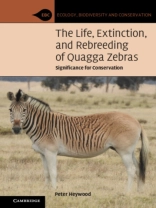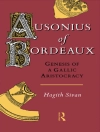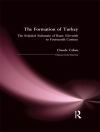Quaggas were beautiful pony-sized zebras in southern Africa that had fewer stripes on their bodies and legs, and a browner body coloration than other zebras. Indigenous people hunted quaggas, portrayed them in rock art, and told stories about them. Settlers used quaggas to pull wagons and to protect livestock against predators. Taken to Europe, they were admired, exhibited, harnessed to carriages, illustrated by famous artists and written about by scientists. Excessive hunting led to quaggas’ extinction in the 1880s but DNA from museum specimens showed rebreeding was feasible and now zebras resembling quaggas live in their former habitats. This rebreeding is compared with other de-extinction and rewilding ventures and its appropriateness discussed against the backdrop of conservation challenges-including those facing other zebras. In an Anthropocene of species extinction, climate change and habitat loss which organisms and habitats should be saved, and should attempts be made to restore extinct species?
Peter Heywood
Life, Extinction, and Rebreeding of Quagga Zebras [PDF ebook]
Significance for Conservation
Life, Extinction, and Rebreeding of Quagga Zebras [PDF ebook]
Significance for Conservation
购买此电子书可免费获赠一本!
语言 英语 ● 格式 PDF ● ISBN 9781108934688 ● 出版者 Cambridge University Press ● 发布时间 2022 ● 下载 3 时 ● 货币 EUR ● ID 8391032 ● 复制保护 Adobe DRM
需要具备DRM功能的电子书阅读器












